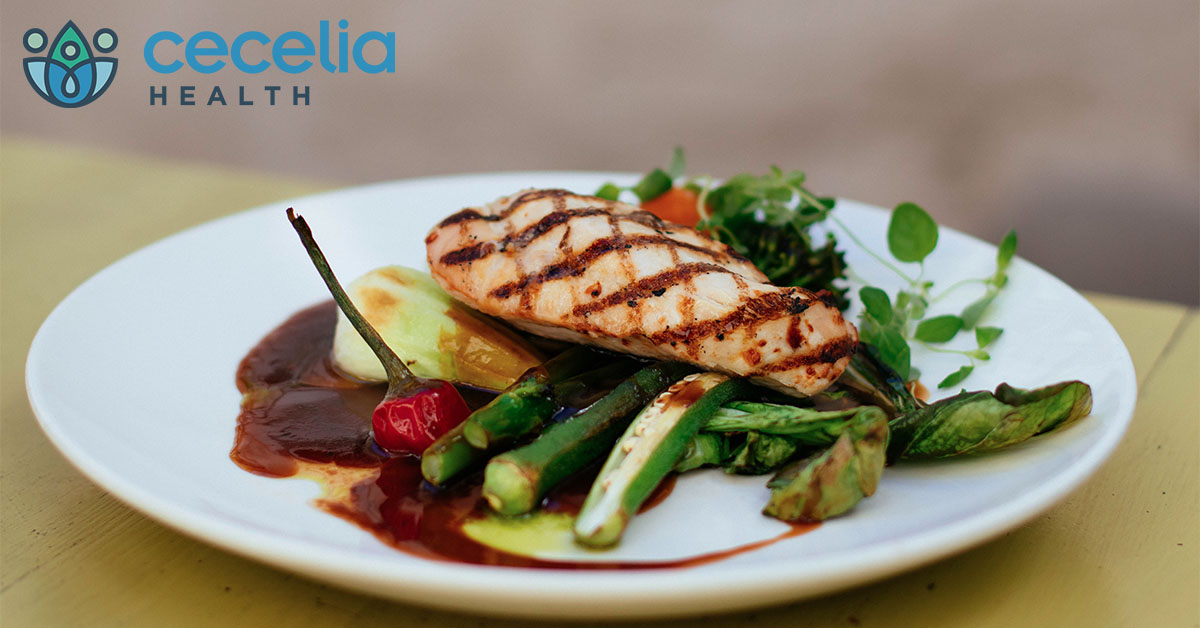Protein is a vital energy-providing macronutrient that plays many important roles in our bodies. To name a few functions, protein helps build and repair muscles, transports oxygen through the body in the form of hemoglobin, provides energy, helps make antibodies, helps with chemical reactions in the form of enzymes, and helps control your blood sugar. To learn more about how protein affects your blood sugar, read more on the Cecelia Health blog page.
The amount of protein you need each day depends on several factors, such as your age, activity level, weight, age, and more. Per the Dietary Reference Intakes, the Recommended Dietary Allowance (RDA) of protein is 0.8g protein per kilogram of body weight for men and women. Most Americans consume adequate amounts of protein each day. However, just because most Americans consume adequate amounts does not mean we are all selecting optimal protein choices. It is also important to note that more protein is not necessarily better, but rather incorporating a variety of protein selections is beneficial for your health.
Protein is available as complete or incomplete protein. Complete protein contains all essential amino acids where incomplete protein may exclude one or two essential amino acids. Complete protein is available through animal products, such as meat, poultry, fish, eggs, and dairy. There are also some plant-based products that are complete protein sources, such as soy products like tofu, edamame, soymilk, as well as other plant-based foods like buckwheat and quinoa. If you consume a plant-based protein that is not a complete protein, you can easily include a complementary protein within 24 hours and amazingly your body knows how to break down the protein and utilize which amino acids it needs. For example, peanut butter toast or beans and rice are two easy complementary protein combinations.
To optimize your protein intake, it is recommended to include a variety of lean protein sources to limit saturated fat. Lowering your intake of saturated fat helps to lower your lipid panel, such as reducing your blood cholesterol which is beneficial for heart health. Some lean protein sources include seafood, turkey, chicken, lean ground beef, beans, legumes, and low-fat dairy products like milk or cottage cheese. Consider incorporating a pork loin, beef tenderloin, chicken breast, filet mignon, tuna, tofu, salmon, plain yogurt, chickpeas, black beans or quinoa to your next meal. Put together a quick tuna sandwich with an apple or orange on the side for lunch or try a new recipe, such as this Baked Fish and Vegetables from ChooseMyPlate or more recipes from MyPlate Kitchen.
Protein is a vital nutrient in your meal plan. Try a new protein selection and incorporate more lean protein sources today.
